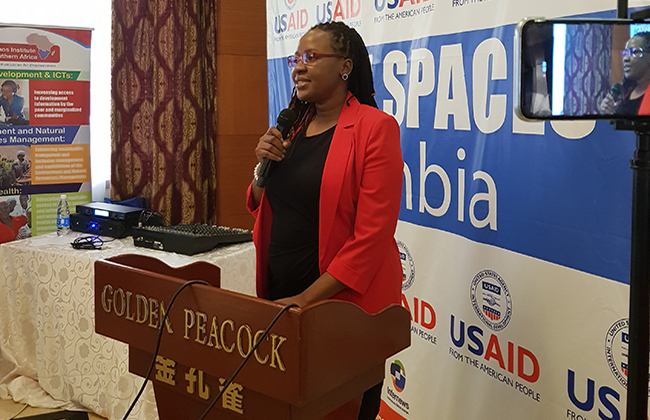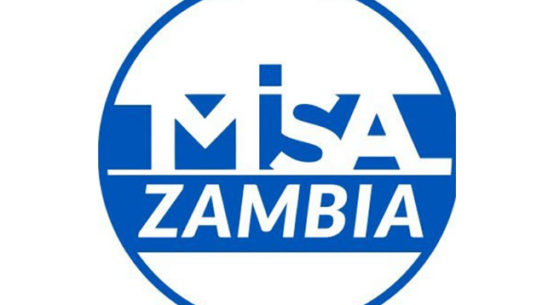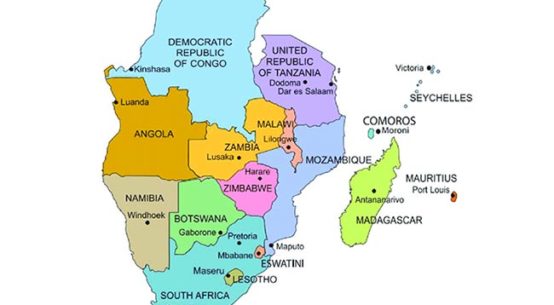
Zambia’s quest to enact the ‘belated’ Access To Information (ATI) Bill has inched closer after the Government reaffirmed its commitment to actualize it into law, premised on practitioners being responsible and accountable to their role as fourth estate.
Last year, Information and media minister Ms. Chushi Kasanda had assured various stakeholders of the Government’s resolve to ensure media and freedoms of the citizenry were actualized under its administration this year, overturning a concern of ‘non committal’ from the previous leaderships after practitioners had sought consent in 2002 to enhance their work.
Ministry of Information and media Permanent Secretary Mr. Kennedy Kalunga said it was the administration’s resolve to actualize the bill into law at the soonest convenience, arguably to empower the citizens with knowledge to demand for quality public services, hold government accountable for corrupt practices around development projects as well as advocate for meaningful progress.
Officiating at a stakeholders consultative meeting in Lusaka, which drew various interest groups, practitioners and media partners, Mr. Kalunga noted that free press remained a vital cog in the fight against corruption and exposing human right abuses as amplied by President Hakainde Hichilema during his address to the lawmakers during the first session of the 13th National Assembly on 10 September last year to enhance Governance and the rule of law.
It further remained the ‘new dawn’ administration, that ascended to power on 12 August last year on the bedrock of upholding the rule of law and enhancing good government, a free press and a corrupt free environment to ensure that media freedom and access to information by facilitating the establishment of a media self regulatory framework and the enacting the ATI into law in conformity with various international practices-Zambia being in a global village.
Kalunga stated that access to information is not unique to Zambia because it is a fundamental human right and a precondition to transparency and accountability in the public sector. Given the fundamental right to information, the Governments have a duty to provide access to information.
To attain good governance tenets, developing countries, Zambia included must accept access to information as fundamental human right.
“Citizens access to information facilitates understanding of decision making process, contribute to transparency and accountability in the public and private sectors,” Kalunga told the meeting. He reminded practitioners and other non state actors on the need to create space for citizenry to be active players in the governance of the country and economic emancipation.
“Information empowers people to demand their right to participate and improve realization of economic, social and cultural rights, and by extension, promote transparency.”
The Government, while providing latitude for practitioners to exercise their freedom extended to them in their profession, urged media houses to co-exist with the people they seek to serve while disseminating information. Mr, Kalunga warned media owners not to use their status to abuse the rights of the citizens by disrespecting them in their media and not giving them an opportunity to be heard.
Zambia will next year be expected to enact the Access to Information (ATI) law ending years of delay, arguably to ensure freedom of the press is attained in the Southern Africa state.
In what many scholars and media practitioners feared was an effort in futility, an action delayed since 2002, Information and Media minister Chushi Kasanda reaffirmed the Government’s resolve to hasten the unveiling of the law and promote freedom of the press..
Speaking during a capacity building training workshop for journalists on effective reporting on Human Rights issues in the capital, Lusaka and organised by the Continental Leadership Research Institute in collaboration with the American Embassy in Zambia, the minister reiterated the government’s will to ensure democratic principles are enhanced by having a free media.
The media plays a critical role in ensuring that the rule of law is upheld and enhancing democratic principles.
The efforts to actualize the practitioners dream is hoped to strengthen the voice of rural communities through Civic Education programs and building the capacity of media personnel to effectively report on human rights activities which is tenable with support.
“The initiative will go a long way in highlighting human rights violations which include early and forced marriages, harmful traditional practices and gender based violence in rural communities,” the minister said.
She implored the media to place high premium on reporting human rights issues by ensuring factual, objective and balanced reporting.
The Media Institute of Southern Africa, a regional body championing free freedom and other media rights in all the 16 member states, is pleased with the Zambia government’s resolve to enact the access to information law in the first half of 2022, according to MISA director in Zambia, Austin Kayanda.
MISA has over the years championed the enactment of the belated ATI into law and has challenged the leadership in Zambia to actualize the bill into law as provided for in the bill of rights clause of the country’s constitution.
At the same occasion, United States Embassy Deputy Public Relations Officer Julie Mellin urged the Government to remain committed to promoting freedom of information and freedom of the press, and her country was happy that various initiatives towards actualization were underway.
Former MISA Zambia Chairperson, Hellen Mwale earlier lamented the failed efforts in the past aimed at actualizing the ATI into law and that now that with the failure by the Referendum, tasked to find lasting solution to the delays of such actions it was imperative that the Presidency acted expeditiously.
Access to information bill, it is envisaged, will help the public to make informed choices as the media will be able to give them full information on issues of their interest. The efforts need the active participation of all lawmakers to ensure the law is enacted without further delay.
As of 2021, there are at least 128 countries that have ratified such laws and enacted implementations that render the right to information possible.
Countries that have adopted these laws include Sierra Leone, Niger, Tunisia, Angola, Côte d’Ivoire, Ethiopia, Guinea, Liberia, Nigeria, Rwanda, South Africa, Uganda, Zimbabwe.
Today, that figure has more than doubled with 95 countries recognising the right to information. As a result, billions of people around the world now enjoy the right to access information held by their governments and national public bodies.
Sweden is the very first country to provide freedom of information to its citizens through the Freedom of Press Act, which came into force in 1766.
Recently, former Ministry of Information and Broadcasting Services Permanent Secretary, Amos Malupenga called for unwavering support and safety of the journalists in the country because of the vital role they play in society.
The promotion of the safety of journalists is essential for the preservation of the fundamental rights to freedom of expression as guaranteed by article 19 of the universal declaration of human rights.
Any interference, harassment, or violence on the media personnel in the discharge of their duties has not gone unpunished in the courts of law.
“Citizens also have a constitutional right to information and the media as messengers of that information should be allowed to carry out this noble responsibility in a free and safe environment,” Malupenga said.
The freedom and safety of the media is non-negotiable but guaranteed in the laws of Zambia thus: “Therefore , any interference , disturbance, harassment , violence or attack on the journalist is an infringement against journalists and infringement on media freedom and the public ‘s right to information which is an acceptable,” he charged.
And United Nations Development programme (UNDP) Deputy Resident representative Roland Seri recognizes the media’s critical role in ensuring accountability of democracy. Media promotes the market place of ideas needed to inform public debates and dialogue on governance, democracy and elections.
“UNDPs global media engagement aims at to promote an enabling environment for free and independent Media through support legal and regulatory reforms on issues such as freedom of expression, access to information and safety of Journalists,”
“The media must also be alert, engaged proactive and never afraid to ask the tough questions on behalf of the citizenry, on matters pertaining to the public interest such as good governance democracy, human rights rule of law, constitutionalism to serve as the voiceless and marginalized section of the population,”
Journalists need protection from harassment, intimidation and any forms of censorship as enshrined in article 19 of the universal declaration of human rights.




